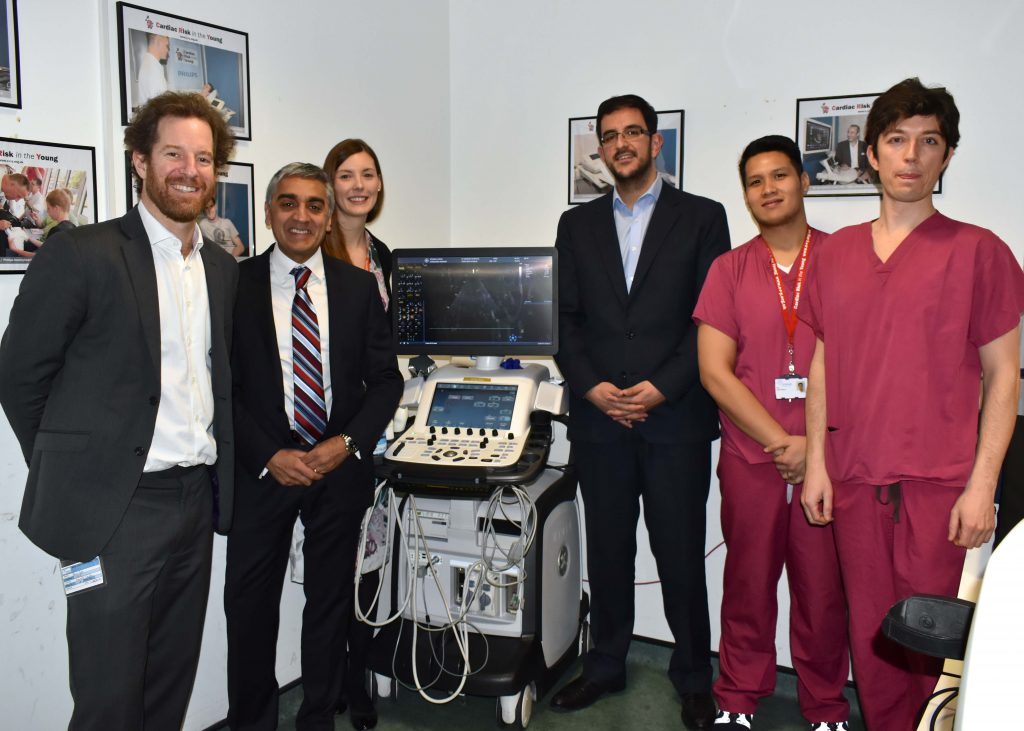CRY are pleased to announce the installation of a new state-of-the-art echocardiogram machine at our Centre for Inherited Heart Conditions and Sports Cardiology at St George’s, University of London. Funded by CRY, the new Vivid E95 (developed by GE Healthcare) will be a huge asset to the portfolio of equipment used on a daily basis by the experts at the CRY centre of excellence.
CRY Consultant Cardiologist Professor Sanjay Sharma comments, “An Echo machine is a vital piece of equipment that plays a crucial role assessing those at risk as well as supporting our research programmes. Any new additions and upgrades to our machines mean we can be assured of providing the most accurate and up-to-date testing for the thousands of young people who come to us to be tested every year – whether elite, professional athletes or members of the community who have been identified with potential cardiac problems.”

Dr Steven Cox, CRY’s Chief Executive, adds, “After a tragedy, families will travel from all over the UK to attend the CRY centre of excellence to find out how this could have happened and if other family members are at risk. They will be seen quickly, together as a family unit and have all tests on the same day. This is a unique referral service we are funding at St Georges with one of the world’s leading experts where there will be extensive assessment of siblings, parents and other relatives. We owe it to them to ensure that we are working with the very best equipment available to us.”
The CRY Centre for Inherited Cardiovascular Disease & Sports Cardiology was first launched in April 2010, under the leadership of Professor Sanjay Sharma. Later that same year, CRY’s Saturday screening clinics at St Georges’ started – originally with a significant 2-year grant from city charity fund, ICAP and now supported annually by CRY families.
Since the Centre was first established, CRY has funded the specialist training of 25 Research Fellows and been involved with the publication of over 150 peer reviewed articles (investigating the causes of young sudden cardiac death as well as supporting the development of internationally acclaimed screening guidelines).





